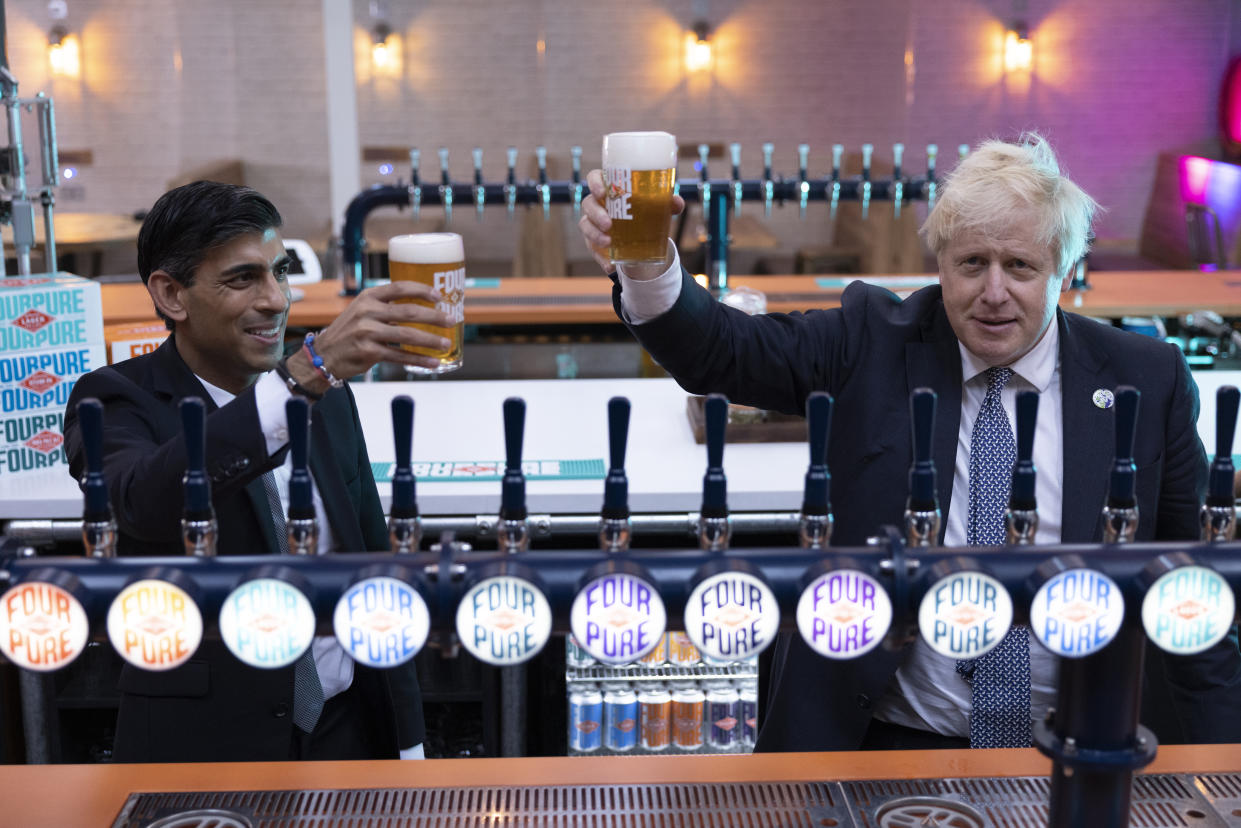Budget: Universal credit changes will mean the 'poorest get nothing'
The poorest people on universal credit will receive no extra from the budget help to make up for the £20 cut to the benefit, a top economist has warned.
Rishi Sunak outlined the government's spending plans in Wednesday's budget, including changes to the universal credit taper rate.
From early December the taper rate will be cut by 8% from 63p to 55p – meaning claimants will be able to keep more of the benefit as they earn more money.
Torsten Bell, chief executive of the poverty think tank the Resolution Foundation, said the chancellor's announcements did nothing for the poorest.
Roughly 60% of people who claim universal credit are not in work, some due to disability or long-term illness, or childcare and caring responsibilities.
A £20 a week uplift to the benefit, introduced to help families during the pandemic, was scrapped last month.
"This is helping better off universal credit claimants – the poorest (who generally aren’t working) get nothing to compensate for £20 cut," Bell said.
Changes to the taper rate were hinted at earlier this month following reports of discontent among MPs and ministers over the impact of the cut could have on low income families.
Work and pensions secretary, Therese Coffey, previously said she was "entirely happy" with the £20 cut.
She later incorrectly claimed that claimants would need to work an additional two hours a week to make up the difference.
Backlash to the cut was significant, receiving criticism from the opposition, poverty think tanks, footballer Marcus Rashford, and a number of Tory MPs – including the founder of universal credit, former work and pensions secretary Sir Iain Duncan Smith.
However Sunak refused to reconsider, insisting that the uplift had always been "temporary".

Polly Neatre, chief executive of the homeless charity Shelter, also warned the budget did not help the very poorest.
“While lowering the taper rate to allow people in work to keep hold of a bit more universal credit is really good, it won’t reach all of the five million families hit by the recent UC cut, and it doesn’t help people unable to work because they are sick, disabled or have young children to look after," she said.
“The government cannot level up this country if it keeps missing opportunities to sort out the housing crisis.
"Until it commits to building 90,000 green social homes a year, families are going to continue to face the agonising choice of whether to put food on the table or pay the rent.”
Labour criticised the chancellor for announcing cuts to the duty on alcohol products like champagne and prosecco, set to cost around £3bn, while simultaneously failing to reinstate the £20 uplift.
Labour MP Stella Creasy claimed the government had put "prosecco before parents".
Rachel Reeves, shadow chancellor, said "working people on universal credit still face a higher marginal tax rate than the prime minister" and that there was a "cost of living crisis."

"Labour also welcomes the government’s decision to reduce the universal credit taper rate, as we have consistently called for," she said.
"But the system has got so far out of whack that even after this reduction, working people on universal credit still face a higher marginal tax rate than the prime minister."
The Institute for Fiscal Studies (IFS) also highlighted a cost of living crisis, saying "large swathes of the population face a squeeze on living standards over the coming year."
"A group who are likely to find the coming months especially tough are households without someone in paid work," they said.
"Prices are set to continue rising relatively quickly over the winter while their benefits stay the same, and while many will still be adjusting to the removal of the temporary £20 per week benefit uplift."
It is estimated up to 800,000 people could be pushed into poverty as a result of the £20 cut to universal credit that came into effect this month.
The cut - which came into place this month - coincides with soaring household bills, inflation, increases to national insurance, and the end of furlough.
Watch: Rishi Sunak announces 8% cut to Universal Credit taper rate


